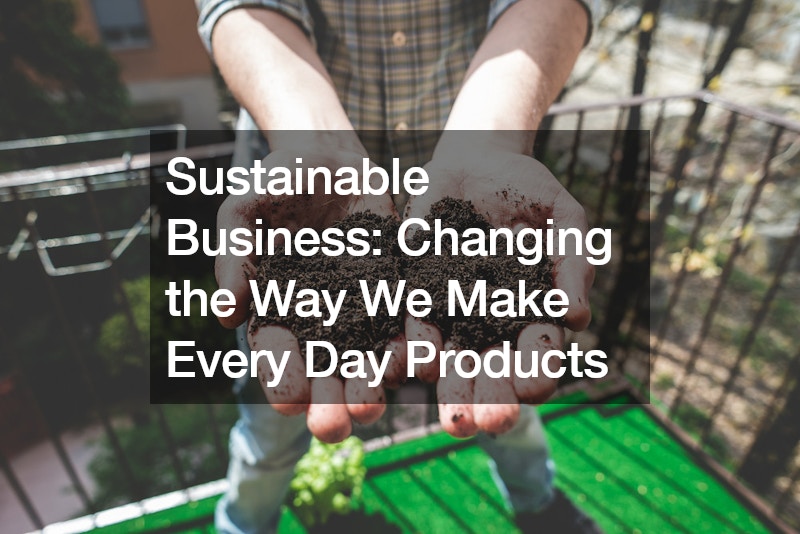
The Urgency of Sustainability in Business
In today’s business landscape, sustainability has transcended mere trendiness to become a critical aspect of success. With consumers increasingly prioritizing eco-consciousness, businesses are compelled to integrate sustainability into their operations. This shift is particularly evident in manufacturing, where innovative technologies like compostable adhesives and kelp-based materials are leading the charge towards a greener future. Let’s explore how businesses can harness these innovations alongside other sustainable practices to thrive in a rapidly evolving market.
Embracing Sustainable Solutions Across Industries
The traditional manufacturing paradigm, reliant on non-renewable resources and generating harmful byproducts, is rapidly evolving. Businesses across industries are embracing sustainable solutions to mitigate environmental impact while meeting consumer demand for eco-friendly products. From renewable energy sources powering production facilities to closed-loop manufacturing processes minimizing waste, the possibilities for sustainability-driven innovation are boundless.
Diverse Examples of Sustainable Practices in Manufacturing
Beyond compostable adhesives, a myriad of sustainable practices are reshaping the manufacturing landscape. Companies are investing in energy-efficient technologies to reduce consumption and emissions, implementing water-saving measures to conserve this precious resource, and adopting lean manufacturing principles to streamline processes and minimize waste. Moreover, sustainable sourcing practices, such as utilizing recycled materials and supporting ethical supply chains, are becoming increasingly prevalent across industries.
The Advantages of Kelp-Based Materials
Kelp possesses several qualities that make it an attractive option for sustainable manufacturing. Firstly, it grows rapidly, with certain species capable of reaching up to two feet in length per day. This fast growth rate makes kelp a readily available and renewable resource, requiring minimal inputs such as freshwater, pesticides, or fertilizers. Additionally, harvesting kelp does not entail killing the plant; instead, it undergoes regrowth after a simple “haircut,” ensuring long-term sustainability.
Environmental Benefits
Beyond its rapid growth and renewability, kelp cultivation offers environmental benefits that extend far beyond manufacturing. Seaweed farming has the potential to mitigate ocean acidification, provide habitats for diverse marine life, and improve water quality. By investing in kelp-based materials, businesses can contribute to the restoration and preservation of marine ecosystems while reducing their carbon footprint.
Applications in Manufacturing
Kelp-based materials can be utilized across various industries, offering versatile solutions for manufacturers. From packaging materials to fashion textiles, the applications of kelp-based materials are extensive. For instance, kelp-derived films can serve as biodegradable alternatives to conventional plastic packaging, addressing the pressing issue of plastic pollution in oceans and landfills. Similarly, in the fashion industry, kelp-based textiles can replace traditional polyester fabrics, reducing the environmental impact of clothing production.
Business Opportunities
For business owners, embracing kelp-based materials presents a multitude of opportunities. By integrating these sustainable alternatives into their manufacturing processes, companies can enhance their environmental credentials, attract eco-conscious consumers, and differentiate themselves in competitive markets. Moreover, as consumer demand for eco-friendly products continues to rise, businesses that prioritize sustainability are poised to capture market share and drive innovation in their respective industries.
The Role of Compostable Adhesives in Redefining Manufacturing
Compostable adhesives represent a transformative advancement in sustainable manufacturing. Derived from renewable sources and designed to break down harmlessly, these adhesives offer a viable alternative to their petroleum-based counterparts. Whether used in packaging, construction, or electronics, compostable adhesives enable businesses to reduce their carbon footprint and contribute to a circular economy where waste is minimized, and resources are conserved.
Navigating Challenges and Seizing Opportunities
Despite the undeniable benefits of sustainable manufacturing, businesses face challenges on their path to sustainability. Balancing cost considerations with long-term environmental impact, navigating regulatory complexities, and fostering a culture of sustainability within organizations are among the hurdles to overcome. However, these challenges also present opportunities for innovation, collaboration, and differentiation in an increasingly competitive marketplace.
The Business Case for Sustainability
Sustainability isn’t just about environmental stewardship—it’s also smart business. By embracing sustainable practices, companies can realize tangible benefits, including cost savings through resource efficiency, enhanced brand reputation, and access to new markets driven by eco-conscious consumers. Moreover, sustainable manufacturing fosters resilience, future-proofing businesses against regulatory changes and market shifts.
Charting a Course Towards a Sustainable Future
As drivers of economic activity and custodians of the environment, businesses play a pivotal role in shaping a sustainable future. By integrating compostable adhesives and other sustainable practices into their operations, companies can lead by example, inspiring change throughout their industries. Together, we can forge a path towards a world where economic prosperity coexists harmoniously with environmental responsibility, leaving a legacy of sustainability for generations to come.
.

